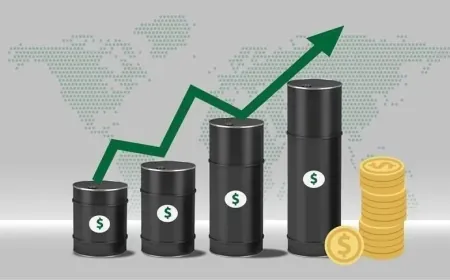Oil Giants Plan 43 Biofuel Projects by 2030 to Cut Aviation Emissions
Major oil companies like BP, Chevron, and Shell are ramping up investments in biofuels, with 43 projects set to add 286,000 bpd of sustainable aviation fuel production by 2030.

Major oil companies are stepping up their investments in biofuels, focusing on sustainable aviation fuel (SAF) as a key solution for cutting emissions in the aviation industry. According to a report from energy consultancy Rystad, leading names such as ExxonMobil, BP, Chevron, Shell, TotalEnergies, and Eni are planning to launch 43 biofuel projects by 2030. These projects are expected to increase production capacity by 286,000 barrels per day (bpd).
SAF: A Greener Option for Air Travel
Sustainable aviation fuel (SAF), made from waste products like used cooking oil and organic crops, presents a cleaner alternative to traditional jet fuel. While SAF produces the same carbon dioxide emissions when burned as kerosene, it is considered environmentally friendly because it’s derived from renewable materials instead of newly extracted oil, which releases more greenhouse gases.
The aviation sector is responsible for nearly 2% of the world’s energy-related carbon emissions, making it a key focus for sustainability efforts. According to Lars Klesse, a bioenergy research analyst at Rystad, “As the energy transition continues, biofuels provide a practical, near-term way to cut emissions without requiring major infrastructure changes.”
BP Takes the Lead in Biofuel Production
BP has positioned itself as a leader in the biofuels market, with the largest planned production capacity of 130,000 bpd. Strategic acquisitions have helped BP and other oil companies strengthen their positions in the growing biofuel sector. For example, BP recently acquired Bunge Bioenergia, while Chevron took over Renewable Energy Group, further advancing their plans to produce more SAF.
Government Policies Boost SAF Adoption
Despite being more expensive than regular jet fuel, SAF is gaining traction thanks to strong government support. The European Union has set a target for at least 2% of aviation fuel to be SAF by 2025, and the U.S. has set an even more ambitious goal: to meet all aviation fuel demand with SAF by 2050. These mandates are driving oil companies to invest more heavily in biofuels, ensuring they can meet the growing demand for cleaner energy solutions.
The Future of Biofuels
With 43 biofuel projects slated for completion by 2030, the world’s largest oil companies are betting big on biofuels as part of their efforts to transition to greener energy. Although SAF remains more costly than traditional jet fuel, the increasing regulatory support and rising demand for sustainable solutions suggest biofuels will play an important role in reducing the carbon footprint of aviation and other industries in the years to come.
Also Read: Oil Prices Surge 3% as OPEC+ Delays Production Increase Amid U.S. Election Concerns































































